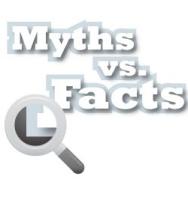 In part one of this series, we looked at four myths about auto insurance rates. While there are certainly many factors that go into establishing your premiums, just as importantly, there are personal choices in your life that have no influence on your auto insurance rates. A bit of knowledge goes a long way toward making sure that you get the best deal when it’s time to renew your policy.
In part one of this series, we looked at four myths about auto insurance rates. While there are certainly many factors that go into establishing your premiums, just as importantly, there are personal choices in your life that have no influence on your auto insurance rates. A bit of knowledge goes a long way toward making sure that you get the best deal when it’s time to renew your policy.
When an auto insurer rates your personal risk, and gives you a price, the results can seem almost arbitrary. Let’s be clear: there’s nothing about the process of setting auto insurance rates that is arbitrary. Insurance underwriting is a science, not a black art. Here are four more items that can positively, or negatively, influence your policy premiums. We’ll break each of these down in subsequent articles:
Myth: Minimum Liability Coverage is All You Need
Most lenders require that anyone financing a vehicle carries comprehensive coverage so that the car can be repaired or replaced if it’s in an accident, regardless of who is at fault. Your own personal financial situation might also dictate that you carry more than minimum coverage.
Fact: Your Credit Score Affects Your Auto Insurance Rates
There are many reasons to monitor your credit score. Anything other than a good credit rating can have a financial impact on you beyond just not being able to finance a new car. When setting your auto insurance rates, your insurer most likely reviews your credit profile as part of the underwriting and risk analysis process. A poor credit report means higher auto insurance rates, in most cases.
Fact: Where You Live Matters
Insurance companies would like you to think that where you park your car at night doesn’t have a big impact on your auto insurance rates. But a driver living in an urban area is going to pay more for car insurance, simply because theft and vandalism rates, as well as car density on the roads, is higher in urban areas.
Myth: If Someone Else Drives Your Car, You’re Both Covered
Depending on state insurance requirements, this may not be true. In general, a policy covers the vehicle and all occupants, and if your vehicle is responsible for an accident, your insurance company pays. If someone else is driving your car, this may not be true. Check with your agent.
Now that we’ve taken a high level look at some myths and facts about auto insurance rates, and what goes into setting those rates, we’ll go into more detail on each in future articles. A little advance knowledge can pay big dividends on your auto insurance rates at policy renewal time, or when you’re shopping for a better deal.





